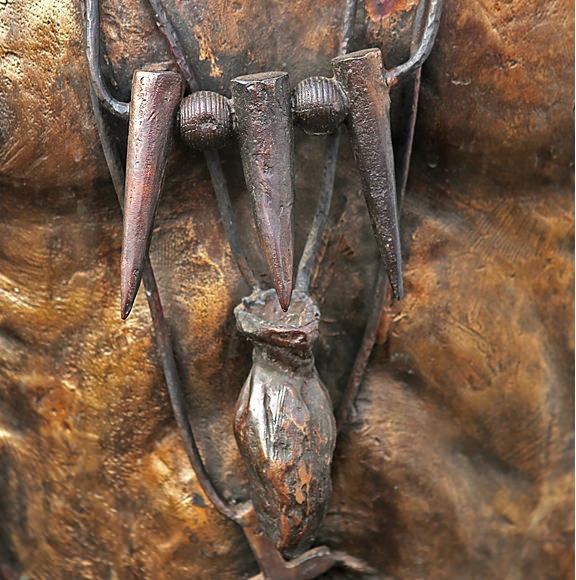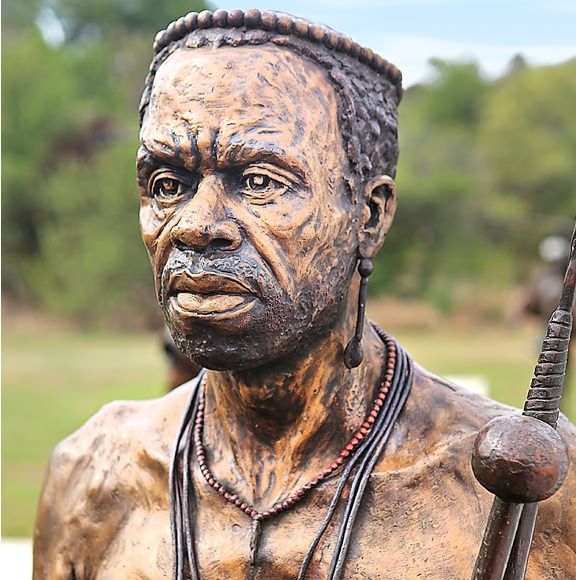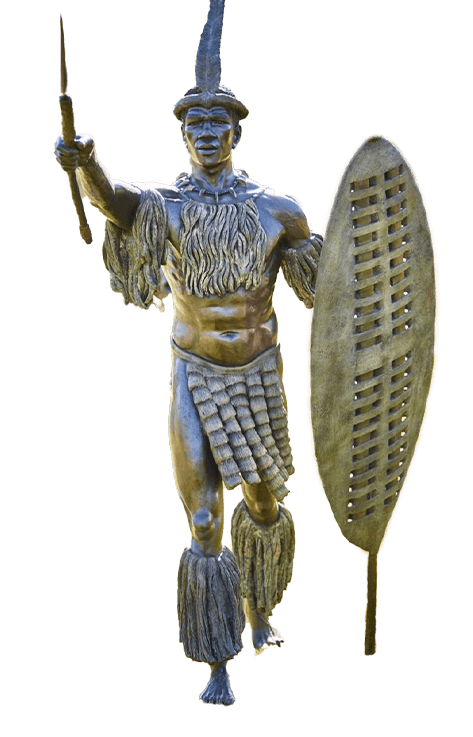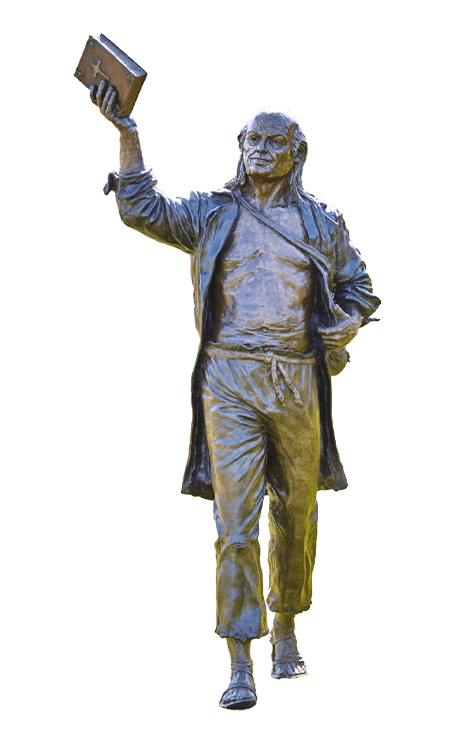


"People say that I occasioned this war. Let me see if by giving myself up it will restore the peace."
Makhanda on his moment of surrender to the British following the battle of Grahamstown, 22 April 1819
Makhanda
1780 - 1820
Advisor to Xhosa Chief Ndlambe, Regent of the amaRharhabe, War Leader of the Rharhabe during the Fifth Frontier War (1918)
Makhanda, also known as Makana, was born near present-day Uitenhage in Eastern Cape. During his youth he was greatly influenced by his mother, a diviner, and by Dr Johannes van der Kemp, a missionary who set up the first mission station in the area.
Makhanda preached of a counter-Christian doctrine and was declared the prophet of two African deities, Mdalidiphu and Thayi. As a diviner he often went into retreat to consult with them for spiritual guidance. Because he was left-handed he was also known as Nxele, the left-handed one.
As one of Chief Ndlambes advisors, he preached a proto-nationalism calling on the Xhosa clans to resist the steady encroachment on their land by white settlers. When Colonel Graham attacked and drove the western Rharhabe clans off the lands just prior to Christmas in 1812, Makhanda and his family like others lost their land and what would have been the autumn grain harvest as Grahams Redcoats burnt homesteads and sorghum fields.
War with the British broke out again in 1818. Makhanda, together with Ndlambes eldest son, Mdushane, spearheaded a frontal assault that caught the Redcoats napping, on the British fort at Grahamstown. The intervention of a contingent of Khoena (Khoi) elephant hunters, under Chief Boesak, afforded the British the opportunity to turn their cannon on the advancing Xhosa army, breaking up the assault with grapeshot. Mdushane fell on the battlefield.
The British retaliated by invading Ndlambes remaining territory. In April 1819, to avert further attacks, Makhanda surrendered himself to the British.
He was transported to Robben Island on a ship called The Redwing along with David Stuurman who had recently been recaptured by the British. On Robben Island Makhanda was kept apart from other prisoners, given separate accommodation, food and furniture.
In December 1819, Makhanda , along with 30 other prisoners , escaped from the island and was drowned off Blaauberg beach. David Stuurman, who was party to the escape, survived. Makhanda had promised his people that he would return and many clung to that hope. Funerary rites for Makhanda were observed 50 years after his death, when hope of his return was finally abandoned.
Mahkandas name became legendary among those who resisted colonial aggression and among freedom fighters for two centuries.

